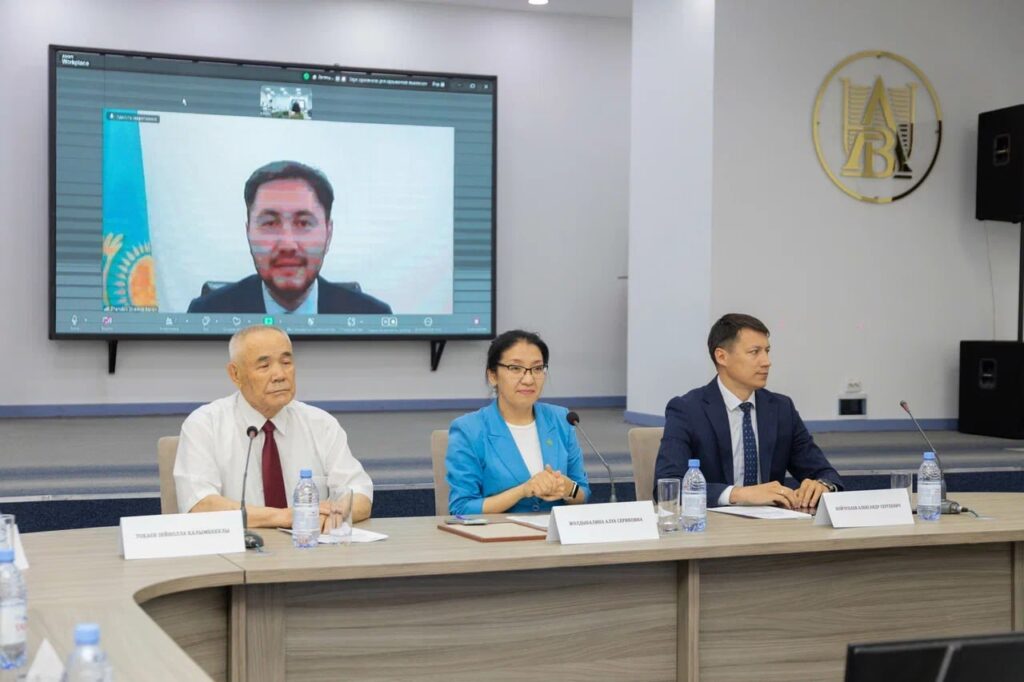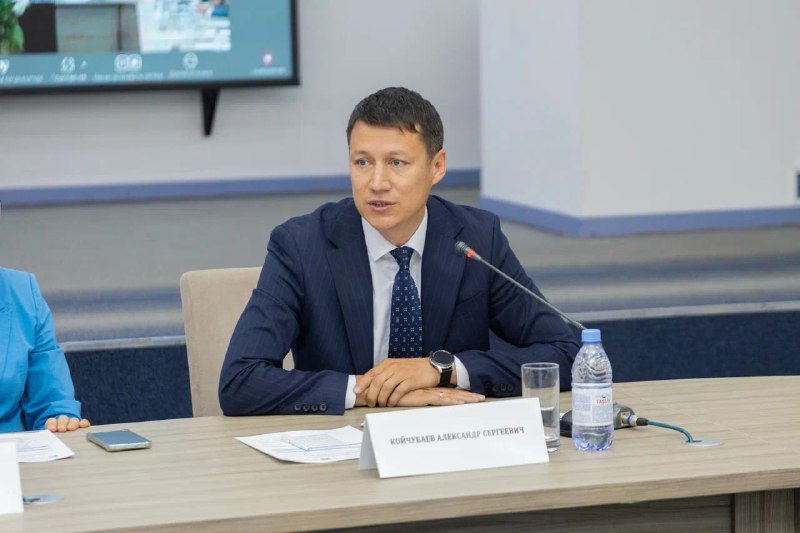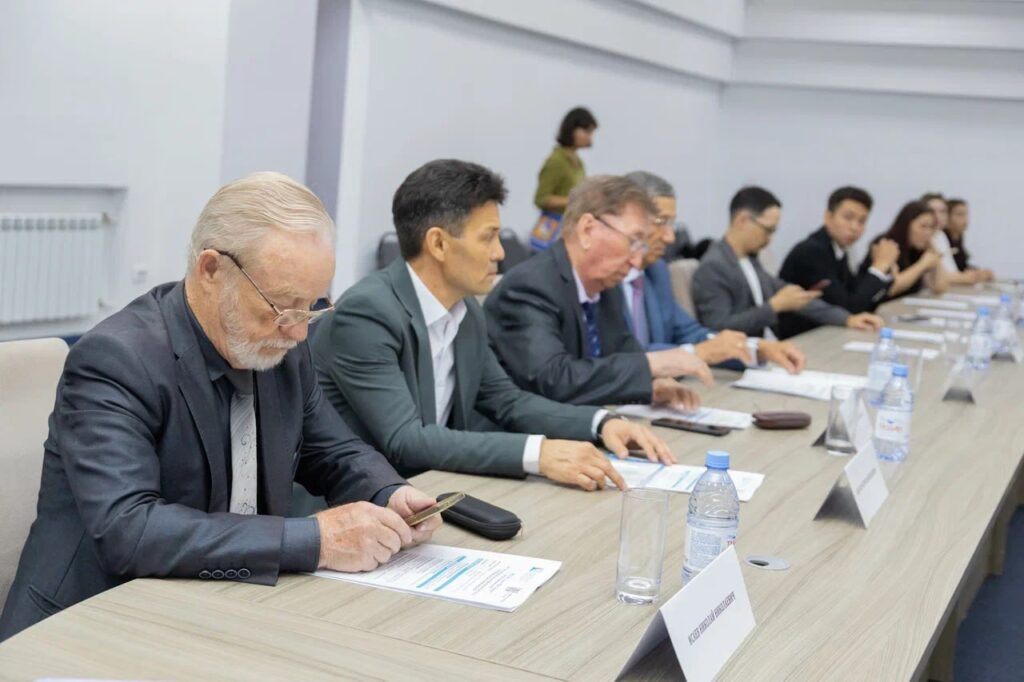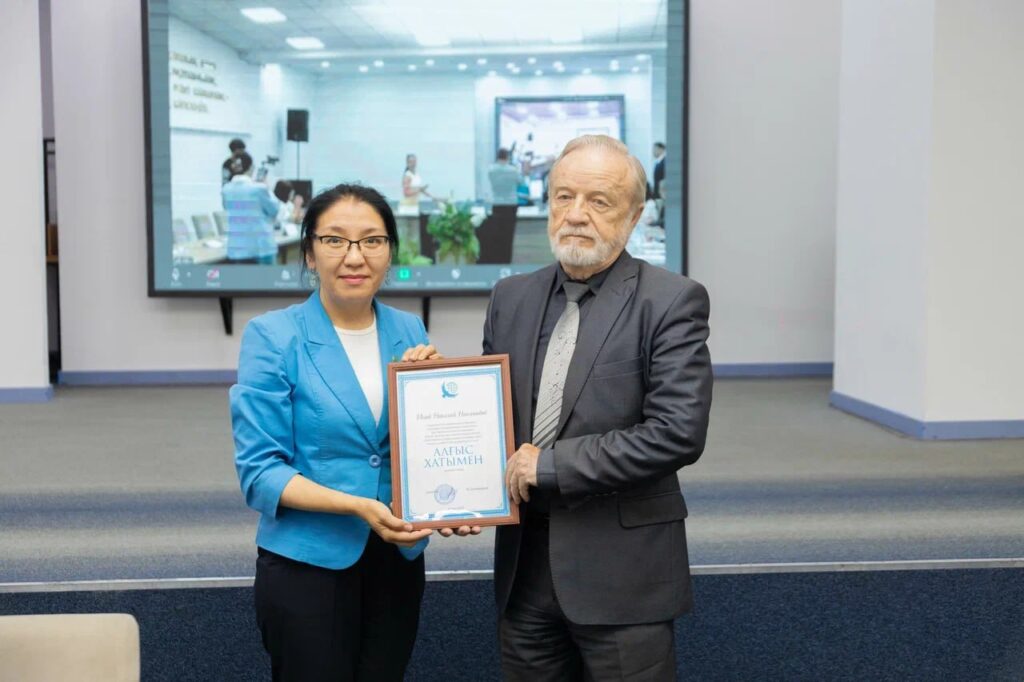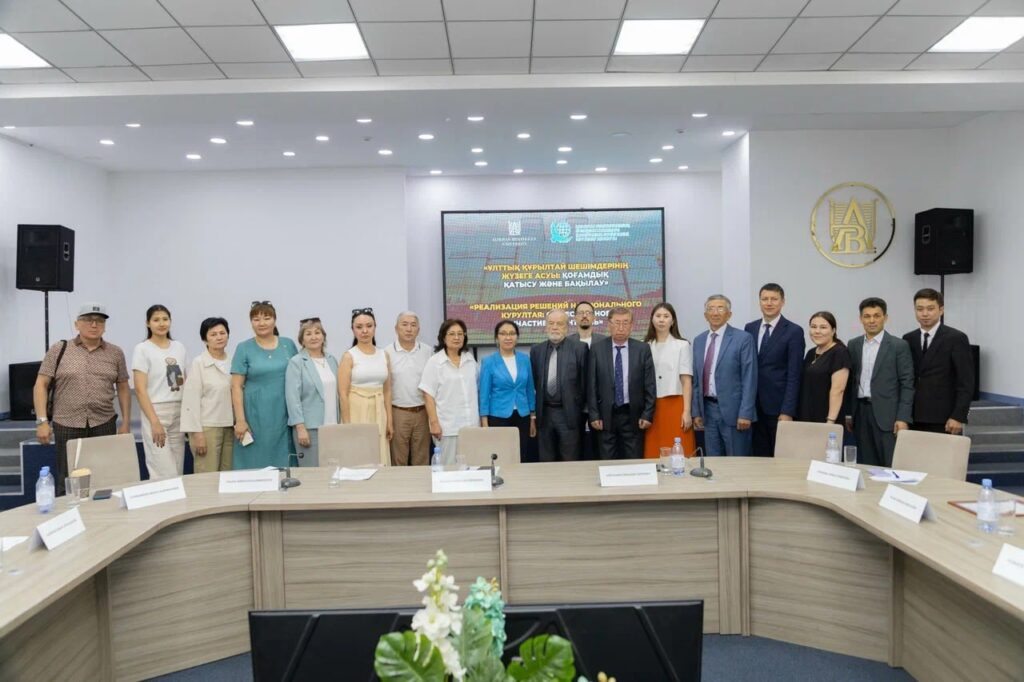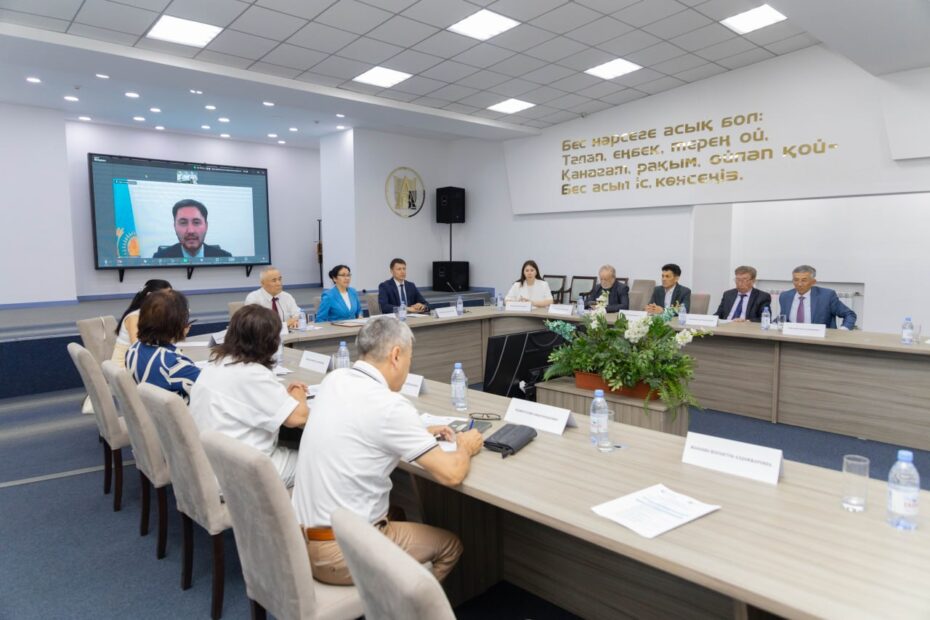On June 20, a meeting of the National Expert Platform “KISI GPS: Gylym. Pikir. Sayasat” was held at Alikhan Bokeikhan University in Semey, dedicated to the implementation of decisions made by the National Kurultai, as well as public participation and oversight in these processes.
The event was organized by the Kazakhstan Institute for Strategic Studies under the President of the Republic of Kazakhstan (KazISS) with the participation of local educators, the scientific and academic community, and representatives of public organizations.
The discussion focused on pressing issues related to the implementation of the National Kurultai’s decisions, including mechanisms for public participation and oversight, and the role of civil society, public councils, and the scientific community in policymaking and monitoring.
Opening the session online, Zhandos Shaimardanov, Director of KazISS under the President of Kazakhstan, emphasized the importance of public oversight and monitoring as essential tools for enhancing transparency, accountability, and effectiveness of state policy.
Speaking about the decisions of the IV session of the National Kurultai, which require strengthened public oversight at the local level, the Director stressed that project implementation must be accompanied by transparent information on timelines, budgets, and outcomes, as well as mechanisms for public monitoring.
“We deliberately chose to hold discussions not in the capital but in the regions because KazISS pays special attention to developing expert capacity outside the capital. It is at the local level where Kurultai decisions are truly implemented, face practical challenges, and require consideration of local specifics. Therefore, we decided to hold the second discussion in the Abai region — a region that combines rich historical and cultural heritage, strategic economic potential, and growing investment appeal,” said the KazISS Director.
Deputy Director of KazISS, Alua Zholdybalina, called on the platform participants to engage in dialogue and invited regional experts to cooperate.
“Last year, the Institute established a dedicated department for regional work, and based on it, a network of regional representatives was formed. Today, our representatives are already working in nine regions of the country,” noted the Deputy Director.
Speaking about the development of the Abai region, A. Zholdybalina highlighted promising areas such as territorial branding, domestic tourism, and strengthening regional universities as centers of science and regional studies.
Continuing the discussion, Rector of Alikhan Bokeikhan University, Alexander Koichubaev, shared initiatives advancing the regional university to a national level.
“In 2022, the university leadership made a strategic decision to allocate its own budget for the development of a regional IT cluster. The creation of this technocluster received support from Astana Hub and the Ministry of Digital Development. This was only the second such experience in the country after the Terricone Valley in Karaganda. The Abai IT-Hub at Alikhan Bokeikhan University has become a platform for the development and implementation of projects in areas such as 3D modeling and prototyping, mobile application and game development, and more,” Koichubaev shared.
As a result, the university became one of Kazakhstan’s “anchor” institutions for training specialists in artificial intelligence.
During the discussion, experts, scientists, and representatives of public organizations shared ideas and initiatives aimed at strengthening public oversight and expert capacity in the regions.
Nikolay Issayev, Deputy Chair of the Public Council of the Abai region and Vice-President of the Association of Non-Profit Organizations, proposed including regional representatives in the public councils of central government bodies.
Professor and academician of the National Academy of Natural Sciences of Kazakhstan, Zeynolla Tokayev, emphasized the need to develop agricultural science as the foundation of the agro-industrial complex.
Askat Dyussembayev, member of the Veterans Council, highlighted Semey’s potential as a port city and its capabilities in Irtysh River navigation, including passenger and cargo transportation.
Alexander Lyui, Head of the Public Fund “Rodnoy Gorod” (Native City), suggested focusing on digital education for elderly citizens as a preventive measure against fraud in the digital environment.
Aman Rakhmetullin, Head of the Department of Social and Humanitarian Disciplines at Alikhan Bokeikhan University, proposed creating regional think tank centers to conduct comprehensive regional studies.
The proposals and initiatives put forward by representatives of the regional expert community are becoming the foundation for expanding the substantive agenda of the National Kurultai.
